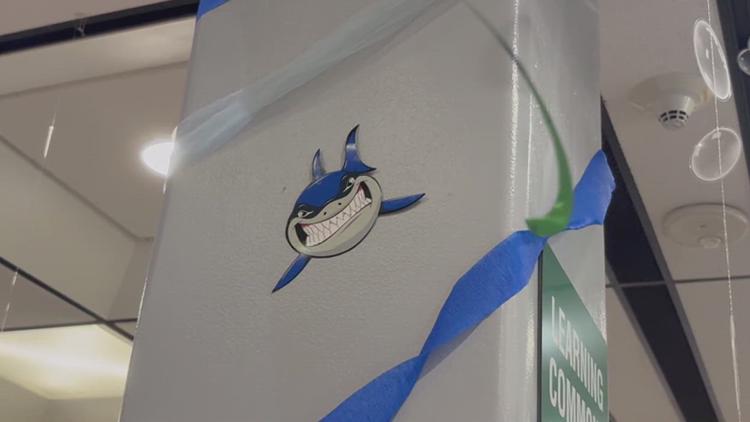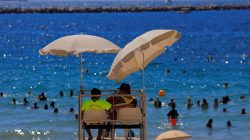Exploring the Depths of Marine Research at Texas A&M University-Corpus Christi
Texas A&M University-Corpus Christi is once again celebrating Shark Week, an event that brings together students and the public in a weeklong series of activities centered around marine research. The university’s focus this year is on one of the Gulf of Mexico’s most iconic predators: sharks. Through a variety of engaging events, researchers are showcasing their ongoing projects and encouraging discussions about the role these animals play in the ocean ecosystem.
Throughout the week, attendees have the opportunity to learn about the latest findings from marine biologists who are studying different aspects of shark behavior, diet, and their impact on the environment. One of the key topics being explored is what sharks eat and how their diets can serve as indicators of the overall health of the ocean. This information is crucial for understanding the balance of marine life and the effects of environmental changes.
Jasmine Nyce, a Ph.D. student at TAMU-CC, shared her insights on the importance of studying shark diets. “Sharks are top predators, so they eat everything below them, like fish and other marine creatures,” she explained. “If something is happening in the ocean, sharks might give us a clue about what it is.”
Nyce also reflected on her personal journey into marine biology. Her initial fear of sharks eventually transformed into a deep fascination with these creatures, leading her to pursue a career in shark research. Her story highlights the potential for personal growth and discovery through scientific exploration.
The Shark Week events at TAMU-CC are open to everyone, making it a unique opportunity for the public to engage with marine science. From interactive exhibits to panel discussions, there is something for all ages and interests. The events continue through the end of the week, offering a chance to learn more about the importance of sharks in maintaining healthy ocean ecosystems.
Key Topics Covered During Shark Week
- Diet and Ecological Indicators: Researchers are examining what sharks consume and how this information can be used to assess the health of the ocean.
- Marine Biology Careers: Students and enthusiasts are encouraged to explore opportunities in marine research and conservation.
- Public Engagement: The university is using Shark Week as a platform to educate the community about the significance of sharks and their role in the marine food chain.
Additional Highlights from the Community
While the focus of Shark Week is on marine research, the surrounding area has its own set of news and updates. For instance, the southbound lanes of the new Harbor Bridge will open following a ribbon-cutting ceremony on Saturday. This development is expected to ease traffic congestion and improve access to the city.
Other local stories include a Corpus Christi resident celebrating her 100th birthday, a bishop reflecting on his 50 years of service, and a power cut that led to a shift in decision-making regarding desalination efforts. Additionally, beachgoers have been puzzled by sightings of what appeared to be rice noodles, only to discover that it was actually manatee seagrass.
Weather updates also highlight a mix of scattered rain on Thursday, with additional chances of rain later in the weekend and into the next week. Meanwhile, a group of local dancers from South Texas is preparing to take the stage in New York City, showcasing their talents on a national platform.
Getting Involved
For those interested in staying informed about local news and events, there are several ways to stay connected. Subscribers can follow the university’s YouTube channel for daily news updates and exclusive interviews. Those with news tips can reach out via email, ensuring that their stories are heard and shared responsibly.
Shark Week at Texas A&M University-Corpus Christi is not just about celebrating sharks—it’s about fostering a deeper understanding of the ocean and the creatures that call it home. Through education, research, and community engagement, the university continues to make a meaningful impact on marine science and conservation.







